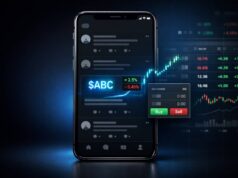Mango Markets, a decentralized exchange (DEX) built on the Solana blockchain, has reached a critical turning point in its regulatory battle. The protocol’s decentralized autonomous organization (DAO) has voted to settle with the U.S. Securities and Exchange Commission (SEC), agreeing to pay a $223,228 fine and cease operations involving its governance token, MNGO. This decision comes in the aftermath of the 2022 exploit that drained $110 million from Mango Markets. It placed the platform under intense scrutiny by U.S. regulators. As this settlement unfolds, questions arise about the broader future of decentralized finance (DeFi): Can DeFi platforms maintain their ethos of decentralization while complying with evolving legal frameworks?
The SEC Settlement and Its Terms
Mango Markets’ settlement with the SEC highlights a series of stringent requirements that mark a significant shift in the DeFi landscape. Under the proposal, Mango DAO will not only pay the fine but also destroy its MNGO tokens. Further, it will request their delisting from all exchanges. The decision to settle was backed unanimously by DAO members, reflecting a pragmatic approach to avoid prolonged legal battles. If the settlement is accepted by the SEC, Mango Markets will effectively halt its operations within the U.S. That is a move that could render its governance structure obsolete.
The SEC’s interest in Mango Markets centers on alleged violations of U.S. securities laws, particularly concerning the offering and trading of unregistered securities. The regulator claims that MNGO tokens qualify as securities under existing laws, thus subjecting them to stricter compliance requirements. The proposed settlement reflects the growing scrutiny of DeFi projects, even those that attempt to limit their engagement with U.S. investors, as was the case during Mango’s 2021 token sale.
The 2022 Exploit: A Turning Point
The troubles for Mango Markets trace back to October 2022, when trader Avraham Eisenberg executed an exploit that siphoned $110 million from the platform. Eisenberg’s actions, which he described as a “profitable trading strategy,” involved manipulating the value of the platform’s native token, MNGO, to inflate his holdings and withdraw large sums of cryptocurrency. Although Eisenberg later returned a portion of the stolen funds, the damage was done—both financially and reputationally. The exploit brought Mango Markets under the radar of multiple regulatory agencies, including the SEC, DOJ, and CFTC.
The Broader Implications for DeFi
The Mango Markets settlement raises a fundamental question: Is DeFi’s vision of decentralization compatible with traditional regulatory frameworks? DeFi platforms, by design, are intended to operate without centralized control, using smart contracts and community governance to manage operations. However, regulators increasingly view these platforms as subject to existing laws, particularly when they involve financial instruments that could be classified as securities.
For the DeFi community, this settlement may signal a trend toward increased regulation that challenges the core principles of decentralization. As more DeFi projects come under scrutiny, the tension between innovation and compliance is becoming more apparent. Critics argue that regulatory pressure could stifle innovation, forcing platforms to either centralize or shut down entirely. On the other hand, proponents of regulation assert that it’s essential for protecting investors and ensuring market stability.
The Future of Mango Markets and DeFi
For Mango Markets, this settlement may be the beginning of the end. The destruction of its governance token undermines the DAO’s decision-making framework, essentially crippling the protocol’s ability to function as intended. The broader DeFi space will likely watch closely as this settlement unfolds, considering the potential precedent it sets for future interactions with regulatory bodies. As more DAOs and DeFi protocols face similar pressures, the industry may be forced to reconsider its approach to compliance, governance, and the sustainability of decentralization itself.
>>> Read more: Victory for FTX Victims: $12.7 Billion Settlement
In conclusion, the Mango Markets settlement highlights the growing regulatory challenges that DeFi projects face. Whether this marks the beginning of a broader crackdown on decentralized platforms or a necessary evolution toward sustainable growth remains to be seen. For now, the balance between decentralization and regulation continues to be the central debate in the world of blockchain and cryptocurrencies.
Readers’ frequently asked questions
How does this settlement affect the future of governance tokens and DAOs in the DeFi space?
The Mango Markets settlement raises concerns about the sustainability of governance tokens and DAOs, particularly in jurisdictions with stringent securities regulations like the U.S. Governance tokens are often used to decentralize decision-making. The SEC’s stance is that many of these tokens could be classified as unregistered securities. This classification challenges the legality of issuing and trading such tokens without regulatory approval. For DAOs, this poses a significant risk, as their core functionality relies on these tokens to coordinate governance. If more governance tokens are subjected to similar scrutiny, DAOs may need to explore alternative models of decision-making. They could shift away from U.S. markets, or seek proactive regulatory approvals to continue operations without legal setbacks.
Could this settlement set a precedent that impacts other DeFi platforms?
Yes, the Mango Markets case could set an important regulatory precedent. The SEC’s involvement in this case suggests that regulators are not limiting their focus to traditional centralized exchanges but are also targeting decentralized platforms. If the settlement is accepted, it could embolden regulators to pursue other DeFi projects with similar token structures or governance models. This could push platforms to either comply by registering their tokens as securities, adjust their operations to avoid triggering securities laws or restrict access to U.S. investors entirely. The precedent could also encourage DeFi platforms to preemptively adopt more transparent practices and legal safeguards to mitigate the risk of similar enforcement actions.
What alternatives could DeFi platforms explore to avoid regulatory conflicts while maintaining decentralization?
Navigating regulatory frameworks while preserving decentralization is a complex challenge. Some DeFi platforms may consider implementing more robust legal compliance strategies. They may geofence their products to exclude U.S. users, acquire legal opinions on their token structures, or engage with regulators early in their development phases. Others might explore new governance models that do not rely on tradable tokens. They could experiment with non-transferable governance tokens (soulbond tokens) to sidestep securities classifications. Additionally, relocating core operations to jurisdictions with more favorable regulatory environments or adopting decentralized legal entities like Wyoming’s DAO LLC structure are other potential approaches. However, these solutions come with trade-offs, often sacrificing some degree of decentralization to ensure long-term viability within a regulated environment.
What Is In It For You? Action Items You Might Want to Consider
Evaluate Your Exposure to Governance Tokens
With the increasing regulatory scrutiny, assessing your current holdings in governance tokens is essential, particularly those tied to DeFi protocols. The SEC’s action against Mango Markets underscores the risk of such tokens being classified as securities. This could lead to delistings, liquidity issues, or even a collapse in value. Consider diversifying your portfolio by reducing your exposure to tokens that could face similar legal challenges.
Monitor Regulatory Developments Closely
Stay updated on regulatory trends, especially those involving the SEC and other major financial authorities. The outcome of Mango Markets’ settlement could set a precedent that affects other DeFi projects and governance tokens. Traders who stay informed are better positioned to make timely adjustments, whether it’s reallocating assets or identifying opportunities in projects that proactively address regulatory concerns.
Consider Alternative DeFi Protocols with Lower Regulatory Risk
As regulatory pressure mounts, look into DeFi platforms operating under more compliant frameworks or in jurisdictions with clearer crypto regulations. Projects that are taking proactive steps – such as acquiring securities licenses or exploring non-U.S. markets – might offer a safer environment for traders. Additionally, protocols experimenting with innovative governance models (like non-transferable or jurisdiction-specific tokens) could present new opportunities while mitigating the risk of regulatory crackdowns.











[…] >>> Read more: Will SEC Settlement Force MNGO Token Shutdown? […]
[…] >>> Read more: Will SEC Settlement Force MNGO Token Shutdown? […]